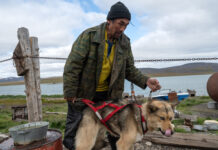Each week, Asian Geographic’s BIG-BYTE delves into the trends and issues that matters on the digital platform. This week, we look into the controversy of meat – one of the most controversial topics in discussions about environmental conservation and sustainability, and how going meatless is the NEW future of consumption
by Nora Ismail
Photo credit: Pexels.com
What is the stake on the world’s climate as we “steak” on gloriously devouring massive demands for meat and livestocks for “a pleasurable moment on the lips, but a lifetime on the hips, and greenhouse gas emissions“.
The discourse around the consumption of meat has increased significantly in the recent decades. As predicted that the world is expected to spike the demand for meat consumption in 2021, the United Nations Food and Agriculture Organization [FAO] projects that global meat consumption will rise by more than 1% this year – the fastest growth that will occur within the low- and middle-income countries – as their income gets increasingly higher which leads to the demand for consumption in meat proteins.
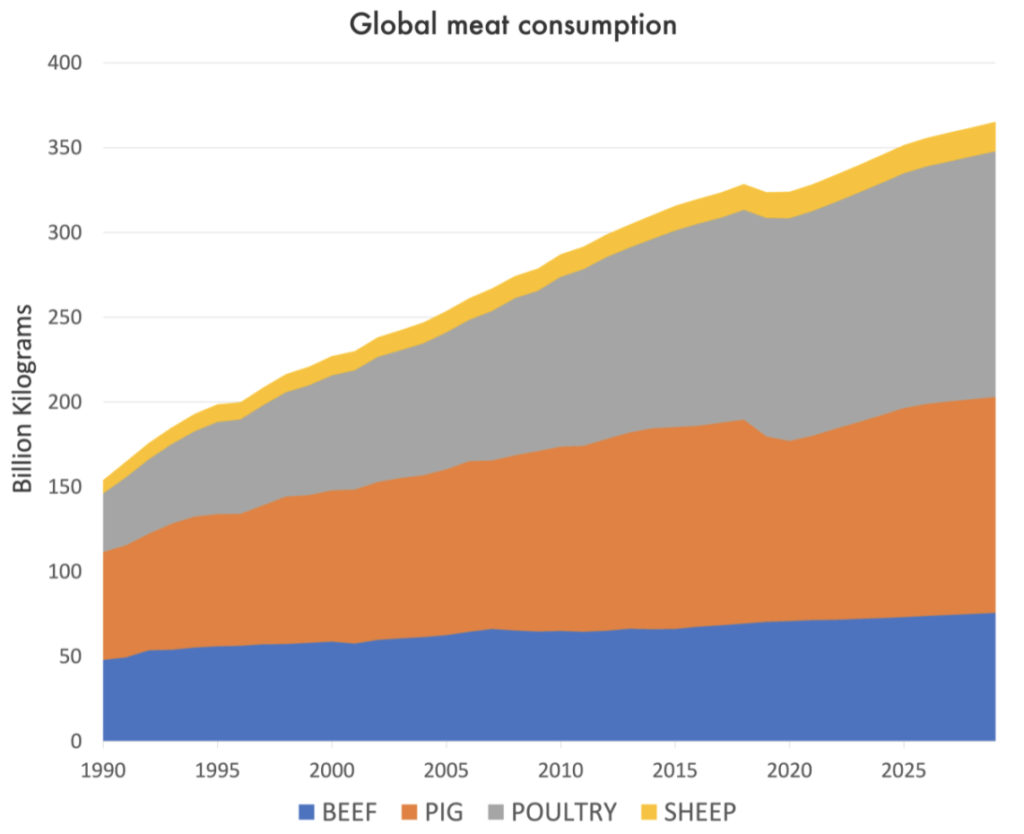 Data & Statistics here
Data & Statistics here
Hence, with such a demand, the greenhouse-gas emissions from food production are expected to rise 60% by 2050 and that is solely dedicated by an increased livestock production.
So, what could humanity do to curb a population’s palate? STOP EATING MEAT?
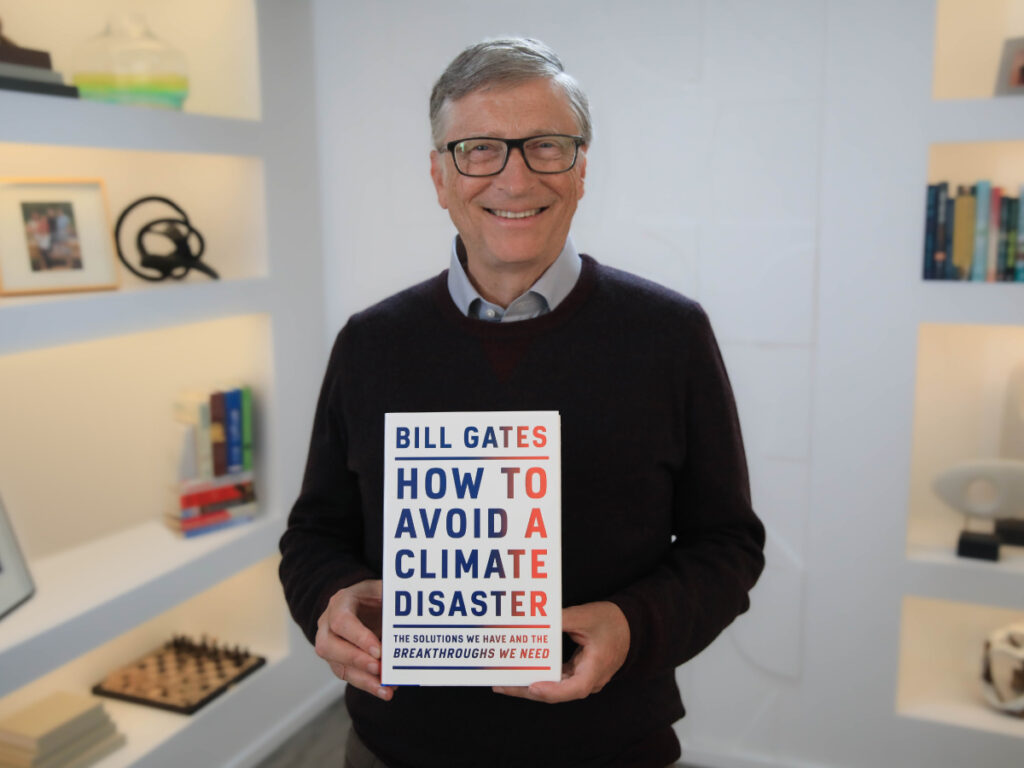 Photo credit: www.facebook.com/BillGates
Photo credit: www.facebook.com/BillGates
“I do think all rich countries should move to 100% synthetic beef […] You can get used to the taste difference, and the claim is they’re going to make it taste even better over time. Eventually, that green premium is modest enough that you can sort of change the [behaviour of] people or use regulation to totally shift the demand.”
– Bill gates
Pass the Veg to Plant-based Innovation to Lab-Grown Meat Substitutes to Insect Protein as the Future of Food
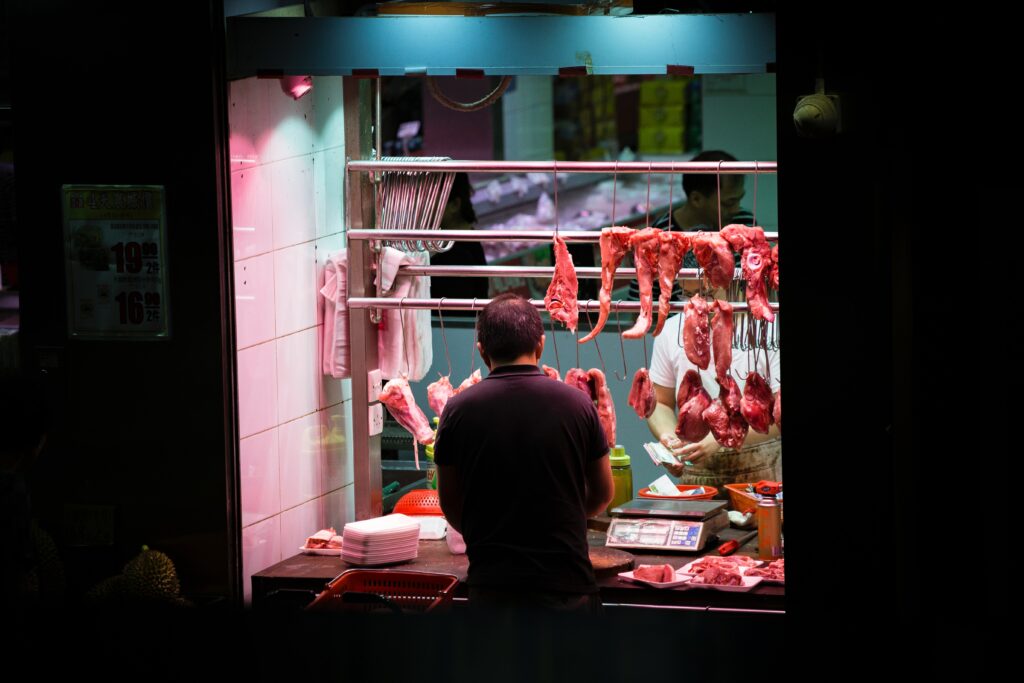
The main cut of the big question here is – could we change the world’s paradigm towards food culture, re-train, shift and indoctrinate an ancient-long cravings for red or white meats and proteins for phytonutrients or engineered meat innovation and substitutes?
As Bill Gates addresses during his interview with Technology Review, meat substitutes or behaviour change can alleviate some of the problems that arises from raising livestock. The carbon footprint of plant-based meats are lower than that of beef and pork and comparable to that of chicken and other poultry.
The carbon footprint of cell-cultured meat, or otherwise known as cultivated, lab-grown, or cell-based meat, remains unclear, but could suggests that this food source will be less carbon-intensive than beef and could be comparable to chicken if produced with clean energy.
By some estimates, 30% of the calories consumed globally by humans come from meat products, including beef, chicken, and pork. The global meat market could be worth as much as $2.7T by 2040, according to CB Insights’ Industry Analyst Consensus.
But what about the plant-based market? According to the “Plant-based Meat Market” Report 2027 by Million Insights, the global plant-based meat market size was accounted for USD 3.3 billion in 2019 and it is estimated to arrive at USD 13.8 billion by 2027 at 19.4% CAGR.
The global plant-based meat market size was accounted for USD 3.3 billion in 2019 and it is estimated to arrive at USD 13.8 billion by 2027 at 19.4% CAGR.
A growing and thriving solution, the shift towards the meatless or substitutes is spearheaded forward during the coronavirus pandemic – meat shortages due to shuttered plants, resulting price increases, and growing numbers of sick workers — conditions that would present an uprising trends and demands towards plant-based companies or alternatives protein start-ups as the innovators and accelerators of the future of food.
Be the Change and Rethink Consumption

“If we keep making food the way we do, we will also destroy the habitats of most wild plants and animals, driving countless species to extinction”
– GRETA THUNBERG
 The stake is on us! If we care for our future, our future’s future, we should look seriously into auditing and make cuts of our carbon footprint – fly less, drive less, go public, eat less meat, consider behavioural change to address environmental challenges that we will face, or… is already facing, as we pace our future generation towards a sustainable future.
The stake is on us! If we care for our future, our future’s future, we should look seriously into auditing and make cuts of our carbon footprint – fly less, drive less, go public, eat less meat, consider behavioural change to address environmental challenges that we will face, or… is already facing, as we pace our future generation towards a sustainable future.
Let’s be open to supporting dietary changes, alternative proteins, low-impact livestock, and other approaches to reduce the downsides of meat production and give us more sustainable options for what to eat – cause we are after all the outcomes of what we consume.
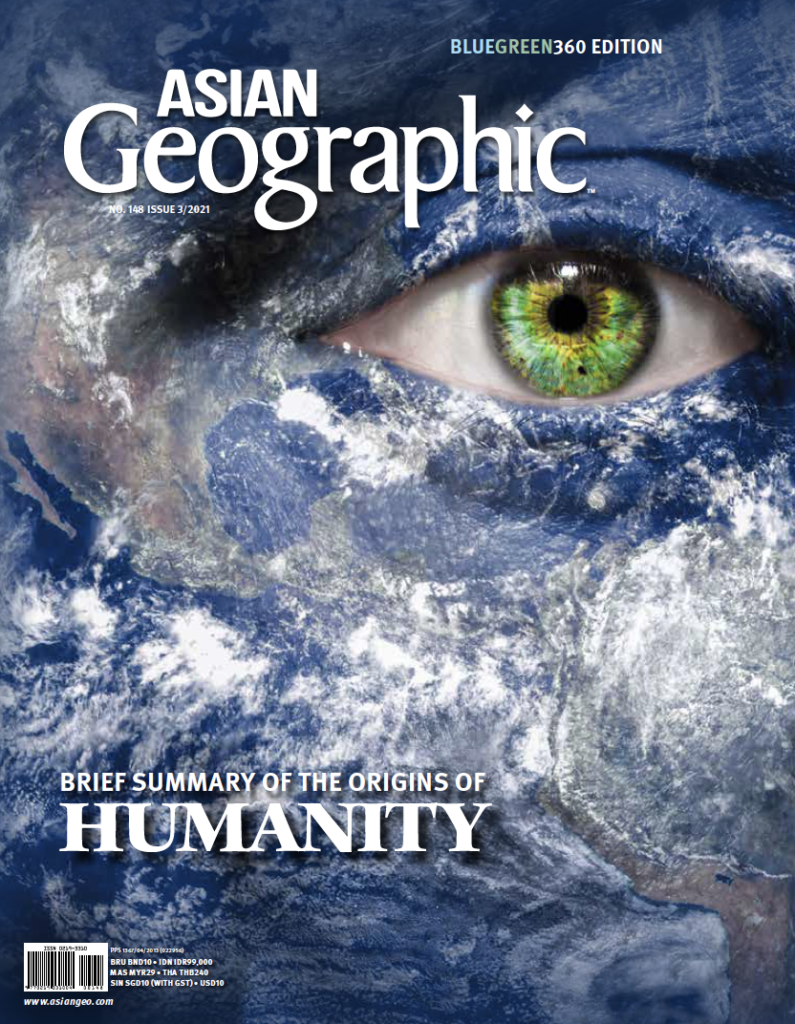 To read more about Related Article: The Meat of the Controversy, check out Asian Geographic Magazine BlueGreen360 Issue 3/2021 out in stores now or reserve your copy by emailing marketing@asiangeo.com.
To read more about Related Article: The Meat of the Controversy, check out Asian Geographic Magazine BlueGreen360 Issue 3/2021 out in stores now or reserve your copy by emailing marketing@asiangeo.com.
Subscribe to Asian Geographic Magazine here or for more details, please visit https://www.shop.asiangeo.com/






